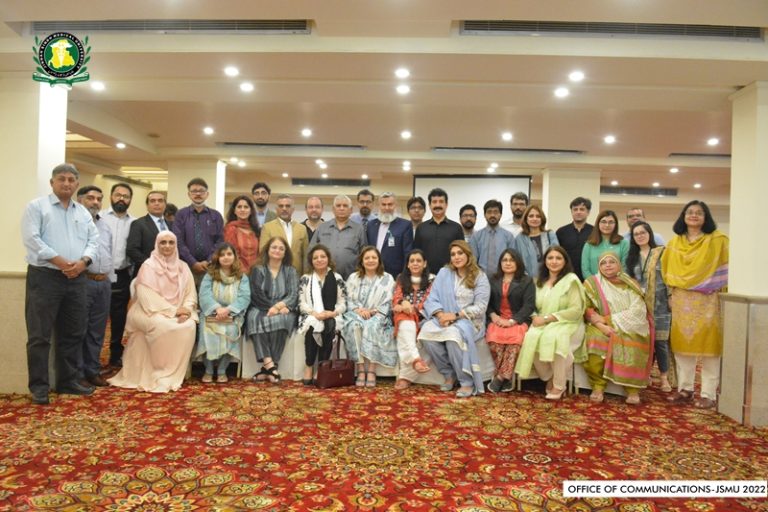
Healthcare professionals, representatives from media regulators, media experts and academicians attended the consultative workshop.
Karachi
Considering media as the fourth pillar of a state due to its important role towards transferring information and opinion making, experts at a consultative workshop have called for capacity building of media persons especially on health issues including provision of emergency healthcare services.
Healthcare professionals, representatives from media regulators, media experts and academicians attended the consultative workshop which was organized by the International Committee of the Red Cross (ICRC), APPNA Institute of Public Health-Jinnah Sindh Medical University and Khyber Medical University.
Objective of the workshop, which was part of the ICRC’s Health Care in Danger (HCiD) initiative, was to develop training for journalists to promote ethical and responsible reporting on the issues related to healthcare in Pakistan.
Speaking on the occasion, Prof. Lubna Ansari-Baig, Chairperson AIPH-JSMU, said, “Various research studies have identified that irresponsible media reporting always hinders the provision of emergency healthcare services. There is a need to improve the standards of media reporting on health issues to counter misperceptions, promote factual reporting, and stop the gradual erosion of trust between healthcare providers and the public.”
The experts in the workshop deliberated in depth upon the problems pertaining to reporting on health matters in national media and provided their feedback to strengthen the content of the training.
They also stressed upon the need for following up this exercise with hands-on trainings for journalists on ethical standards of reporting on health.
Participating in the discussion, Secretary General of Pakistan Medical Association, Dr. Qaisar Sajjad, said, “Healthcare workers are working in challenging circumstances, especially in emergency departments, to provide life-saving services. They need the support of media personnel to promote attitudes and behaviors among the general public that facilitate the provision of healthcare services”.
The representatives of media at the workshop voiced the needs of journalists and reporters specific to reporting on health care. They called for media persons’ capacity building and trainings to objectively report on the issues facing the healthcare sector.
At the same time, they were also of the view that it’s important for healthcare workers to also enhance their communication skills to enable a clearer flow of information between the media and healthcare professionals, especially during disasters or emergencies.
Under the HCiD initiative, the ICRC has been working to make healthcare safer in Pakistan by promoting evidence-based initiatives in collaboration with diverse stakeholders including public health institutions, medical academia, healthcare authorities, and the Pakistan Red Crescent Society. (PR)
__________________